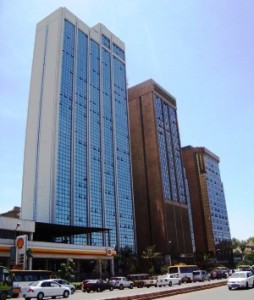 Return on investment is a measure of profitability of the investment. Return on investment is also a measure of the risk in the investment. Real estate is a low risk investment with modest return on investment. Higher returns are associated with riskier investments as investors tend to demand higher returns for assuming higher risk. Investment risks include risk of total or partial loss of the capital or income. Investors therefore prefer shorter periods of risk and seek higher returns. The higher the return on investment therefore, the higher the risk assumed.
Return on investment is a measure of profitability of the investment. Return on investment is also a measure of the risk in the investment. Real estate is a low risk investment with modest return on investment. Higher returns are associated with riskier investments as investors tend to demand higher returns for assuming higher risk. Investment risks include risk of total or partial loss of the capital or income. Investors therefore prefer shorter periods of risk and seek higher returns. The higher the return on investment therefore, the higher the risk assumed.
Profitability in real estate is realised through rental income and capital appreciation. Real estate is a long term investment. Some investors go into real estate with the hope of quick gains. While this has worked for some investors, it has not worked for the majority. The quick gains usually are a result of the imperfect real estate market where information is not readily available to all the players.
With the dismal performance in the equities market in Kenya in the recent years, corporate investors have trained their eyes on real estate. Other than the rental income and capital appreciation, their key reason is to hedge their funds against inflation. Equities experience extreme highs and lows in profitability compared to real estate. With equities, you can realise quick gains and quick losses in equal measure so they tend to be riskier than real estate. Owing to its inelastic nature, real estate narrows the gaps between these extreme highs and lows making real estate less riskier. However, real estate carries a higher liquidity risk. This is the risk that you may not be able to realise the price at the time you want it since real estate takes a much longer time to realise in the market.
Within real estate, properties with stable tenancies in secure locations tend to have lower return on investment. They are better investments because the risks of vacancies are low. Tenants tent to stay on and the landlords assured of rent. Relatively higher rentals are unstable and riskier since tenants can easily shift to other properties providing the same utility cheaply. Such properties would easily fall vacant and may suffer prolonged vacancies.
Stephen Omengo
Real Estate Consultant at Tysons Limited, Nairobi-Kenya
Personal blog: www.omengo.co.ke
Personal email: stephen@omengo.co.ke


Keep them coming Steve that a good read, anyhow i feel by the landlord knowing the market chargeble rent it is a plus, so he cannot over charge or lower charge!
good read!
Thnks Steve for the Knowledge shared.Just to ask, does excessive risk necessarily mean excessive return in any real estate investment?; and there is an argument that individuals who are after quick gains/returns in real estate investment are speculators, not investors. I believe there is a thin line difference between the two, what do u think?Thnks
Hi Andrew,
I think excessive risk means you are just about to lose your capital. You can compare a speculator to a gambler. A gambler wins big if he wins and loses all if he loses.In real estate, I think some few speculators are just smart guys who understand the market before the information cascades to the majority and take the risk. They win when the majority get the information and like the idea.That’s when the competition begins and values go up and so they win.
What you are saying is true. I read an article in the papers which said that people who used to live in the high rental areas are now moving to middle income areas.
Investing in commercial development is regarded as the best method to recession proof investment. Join us as we explore the world of Kenya real estate to figure out how to buy commercial properties….on http://www.propertyleo.com/blog